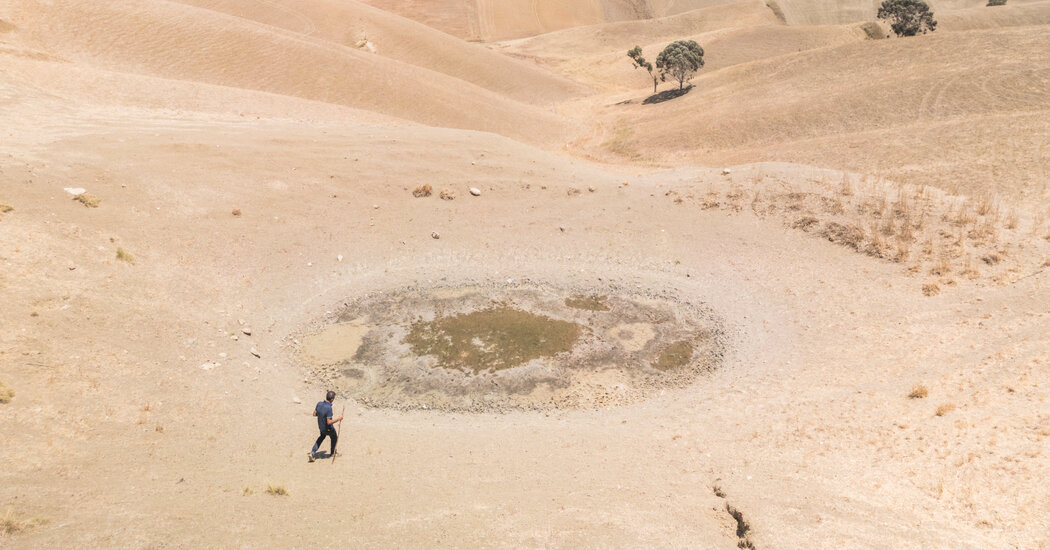Human-caused global warming helped increase dry conditions on every continent, scientists said in a new report, as talks on halting desertification were underway in Saudi Arabia.
From the American West to eastern China, more than three-quarters of Earth’s land became persistently drier in recent decades, according to a new United Nations report that called the shift a “global, existential peril.”
Industrial emissions of planet-warming gases were a major culprit, the report said. If nations don’t stop the rise in temperatures, the drying is likely to expose more places to sand and dust storms, wildfires, water shortages, crop failures and desertification.
The report was released on Monday at a U.N. summit taking place this month in Riyadh, Saudi Arabia, where nations are discussing how to stop more habitable surfaces from turning into barren wastelands.
Nearly one in three people live in moisture-deprived areas, up from one in five in 1990, the report said.
Many of these places are major food producers, such as Argentina, Spain and the Black Sea region, said Narcisa Pricope, one of the report’s authors and a land systems scientist at Mississippi State University. Others, like South Sudan, are vulnerable to conflict and political instability.
The aridity crisis is unfolding “in our lifetime,” Dr. Pricope said. “This is affecting our children.”
